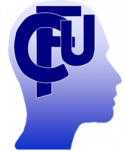Information for patients and carers
What is corticobasal degeneration?
Corticobasal degeneration (CBD) is a progressive disorder that affecting the outer (cortical) parts of the brain and structures deeper inside the brain (basal ganglia). Damage to the basal ganglia tends to cause problems in control of movement; while damage to the cortical areas tends to cause problems in memory and thinking skills.
Why haven’t I heard of this condition before?
Corticobasal degeneration is rare, so not many people will have heard of it. The physical difficulties and stiffness of the limbs caused by CBD mean that people are often assumed to be suffering from Parkinson’s disease or ‘atypical Parkinsonism’.
What are the symptoms?
Initial symptoms may include stiffness of the limbs, shaking (tremor), jerking, and being slowed down. In the early stages symptoms tend to be greater on one side of the body than the other (they are asymmetric). Later people often have difficulty on both sides of their body.
Typically, people with CBD will have particular difficulty controlling one hand/arm. This symptom is termed ‘apraxia’. Often, they report that the affected hand/arm is not under their control and does not seem to do what they want it to. Some people with CBD have the feeling that this limb does not ‘belong’ to them, and moves of its own accord, the name for this particular symptom is “alien limb phenomenon”.
People may find that they become clumsy and lack co-ordination. There may also be problems in walking and balance.
CBD can also cause people difficulty in speaking. Their speech may become slurred (dysarthria), and they can find it difficult to generate speech. Swallowing problems may also occur.
In addition to these physical symptoms, there may be problems in cognitive abilities like planning and memory. However, these are usually relatively mild.
Will the symptoms become worse?
The disease is progressive, so symptoms do get worse over time. However, there is wide variation in the speed of progression. Some people show little decline over the course of a year whereas others change more quickly. Usually, monitoring a person’s progress over a year will give a good guide as to the likely future rate of progression.
What is the cause?
The disorder is a degenerative condition of the brain. This means that cells in certain parts of the brain gradually stop functioning properly, which is why symptoms develop. This damage is associated with the build-up in the brain of a particular protein called tau. However, similar symptoms can be seen in other brain diseases such as Alzheimer’s disease. Understanding how the symptoms relate to the underlying brain disorder is a key area for current research. We know that this condition is not caused by external environmental or lifestyle factors, such as diet, occupational exposure or head injury. It can affect people from all walks of life and is not simply the result of ‘over-use’ or ‘under-use’ of the brain.
At what age are people affected?
The condition mostly occurs after the age of 60, although it can occur in younger people.
Is this condition inherited?
In most cases, corticobasal degeneration is sporadic, which means it appears ‘out of the blue’, with no history of similar problems in other family members. However, in a small number of cases, the condition appears to run in families, suggesting that there may be a genetic component. Generally, the risk of corticobasal degeneration being inherited is low if no other family members are affected with the condition. If you or your family have particular concerns or questions please let us know.
Is there any treatment?
Current treatments do not provide a cure for the disease. However, there are drugs available, which are designed to alleviate symptoms. The most effective way to manage the disorder is through occupational, physical, and speech therapy. The range of treatments available will be discussed with you in clinic.
Although the disease will continue to progress, therapies such as these may help to improve aspects of day-to-day living. Physical therapy may help to maintain a range of motion in stiff joints, in turn helping to prevent pain and sustain mobility. Occupational therapy may be useful in providing and developing helpful equipment to keep people active and more independent. Speech therapy may improve clarity and volume of speech.
Is there research into the condition?
Yes, certainly. The interest in this area of research increases each year. The aim is to understand the mechanisms that underlie this disorder, so that better treatments can be developed. Our department is an active contributor to research in corticobasal degeneration and other degenerative disorders. If you would like to find out more about the research carried out in our unit, please visit our website or ask when you attend the clinic.
